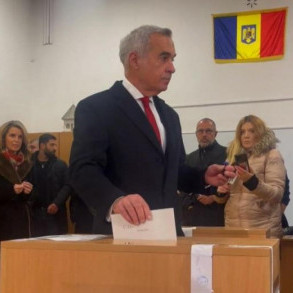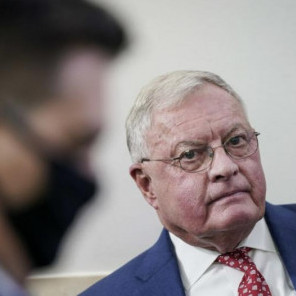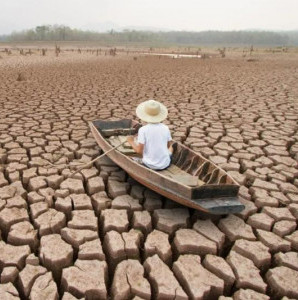Despite holding two elections this year, Israeli Prime Minister Benjamin Netanyahu is no closer to forming a government than he was before the elections. The Knesset is sharply divided between religious Jerusalem and secular Tel Aviv one might say. In Jerusalem is Prime Minister Benjamin Netanyahu’s coalition of nationalist and religious parties, in Tel Aviv Benny Ganz’s Blue and Whites, a fusion party of secular voters who loathe Netanyahu and resent the privileges enjoyed by Israel’s Haredi Jews. These include control of Israeli religious life and institutions and exemption from the nation’s otherwise universal draft. The Haredi often live on the public dole. Standing above all this is Avigdor Liberman’s Israeli Bitenyu Party, itself a nationalist party composed almost entirely of Russian Jews. Liberman advocates for the destruction of Hamas, but opposes the Haredi. With Bibi and Avi, the dispute is personal as Liberman quit as Minister of Defense, triggering the first round of elections this past spring.
The Israeli deadlock along political-socio-economic lines is not isolated but endemic to the entire west.
In the wake of the Second World War, the West turned to collective security and collaborative economics under American leadership. Abroad, the west stood against Soviet communism. At home, the public in North America and Western Europe saw gradual but steady improvement in everyday life. After the West won the Cold War, Professor Francis Fukayama proclaimed ‘the end of history’, and argued that the great issues had been settled in favor of transnational institutions and welfare states. President George Bush, the last of the Greatest Generation leaders forged by the Depression and World War Two, called for a ‘New World Order’ of international cooperation. This meant free trade, open borders, and an activist foreign policy.
For the next 25 years, a new generation of technocratic elites implemented this new order. These elites are the children of the upper-middle class and the rich. They attended their nation’s elite schools and live a Bourgeoises lifestyle. In all things they are certain in their righteousness and in their right to lead. Whatever their nation, this new generation of elites think and even look alike. France’s Emanuel Macron, Britain’s Tony Blair, and Canada’s Justin Trudeau, for example, are all interchangeable. Even nominal conservative leaders like David Cameron, former House Speaker Paul Ryan, and George W. Bush look the part of well-heeled cosmopolitan elite.
Throughout the 1990’s and 2000’s, unrefined insurgent politicians challenged the elite’s consensus. Texas billionaire Ross Perot upended the 1992 American general election by talking about trade, jobs, and budget deficits. Perot eventually won 19% of the vote. Populist Pat Buchanan railed against the GOP free-traders in the Republican primary elections of 1992 and 1996. France’s nationalist Jean-Marie Le Pen advanced to the nation’s runoff election in 2002.
These populist uprisings were warnings, but the elites ignored them until the 2010s. In Britain, anti-EU forces, led by the indefatigable Nigel Farage, won the Brexit referendum 52% to 48%. Later that year, the declassee and nouveau-riche Donald Trump defeated Hillary Clinton, the ultimate elitist insider. In 2018, Brazil struck another blow against the elites by electing Jai Bolsonaro, the ‘tropical Trump’. Today, the elites are in crisis. The likes of Theresa May and Paul Ryan have no answer to the nationalism of Donald Trump and Boris Johnson. Uninspired and out of ideas, all they can do is lock up their governments.
Prime Minister Boris Johnson remains in office without even a majority in the Commons. Here, Labour and the Liberal Democrats refuse to accept the verdict of the Brexit referendum, in which 17.4 million Britons voted to leave the European Union. ‘This parliament is a dead parliament!’ The Crown’s Attorney General, Geoffrey Cox, thundered from the front bench last week. As Britain’s Brexit approaches the 31 October deadline, Labour holds the mother of Parliaments in limbo and refuses to agree to an election. Previously, the Prime Minister could dissolve Parliament and call an election whenever he saw fit. But, after the election of 2010, Tory leader David Cameron formed a government with the Liberal Democrats for the price of a law requiring two thirds of Parliament to approve dissolution. But, Labour does not dare agree to an election, as the dynamic Johnson will surely trounce Labour’s socialist without humor, Jeremy Corbyn.
Across the Atlantic, the Democrats are in denial. Assured by polls and pundits alike that Hillary Clinton would not just beat Trump but trounce him, the Democrat elites refuse to accept the result of the 2016 election. For two years, the Democrats and the Deep State tried to handicap the Trump administration with scandal. Independent Counsel Robert Mueller’s two-year Russian collusion investigation found no collusion and no obstruction by the Trump campaign, none whatsoever. Undaunted, the Democrat controlled House of Representatives has launched an ‘impeachment inquiry’ against President Trump, alleging that he improperly asked Ukrainian president Volodymyr Zelensky to investigate former Vice President Joe Biden. With the House Democrats and President Trump deadlocked, legislation on the border, on trade, on infrastructure, remains impossible.
As of this writing, polls show that the Tories would win a parliamentary majority at Labour’s expense – should they deliver Brexit. In America no Democrat looks able to defeat President Trump. By the end of 2020, the electorate will have clarified the situation for the politicians.









